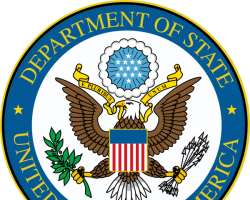Togolese Efforts to Combat Wildlife Trafficking

WASHINGTON, February 7, 2014/African Press Organization (APO)/ -- Press Statement
Jen Psaki
Department Spokesperson
Washington, DC
February 6, 2014
Secretary Kerry called Togolese President Faure Gnassingbe today to commend his government on the major strides being made to combat international wildlife trafficking, including the recent arrest of three major illegal wildlife traffickers in Togo.
Togo has sent a strong message to the world about its commitment to protecting Africa's elephant populations. In the last month, Togolese authorities have made multiple seizures of illegal ivory, totaling more than four tons. Individually and collectively, these are the largest seizures of illegal ivory in West Africa's history. In a separate incident in August 2013, the Government of Togo arrested notorious wildlife trafficker Emile N'Bouke. Togo's efforts contribute to the worldwide struggle against illegal wildlife trafficking and the U.S. continues to partner with Togo in combating this transnational threat.
Wildlife trafficking is a multi-billion dollar criminal enterprise that has expanded from a conservation concern to a security threat. The increasing involvement of organized crime in poaching and wildlife trafficking promotes corruption, strengthens illicit trade routes, destabilizes economies and communities that depend on wildlife for their livelihoods, and contributes to the spread of disease.
In July 2013, President Obama signed Executive Order 13648 to marshal the efforts of the U.S. Government to meet this challenge at home and to assist foreign governments combating wildlife trafficking and related transnational organized crime.
In November 2013, the State Department also announced its first reward offer of up to $1 million under the President's Strategy to Combat Transnational Organized Crime for information on a prominent wildlife trafficking network in Southeast Asia.
